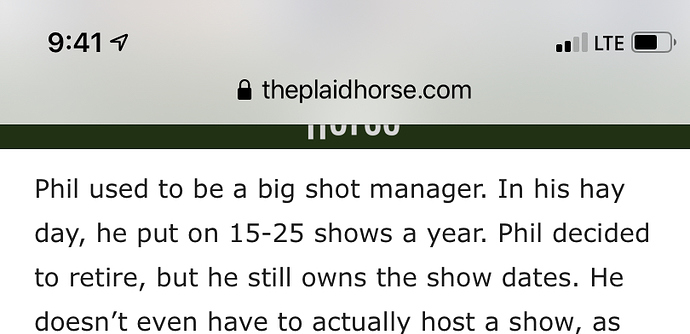I never gave TPH a single thought until the post last week about game theory and the USEF and now this one. She calls herself doctor since she has a PhD in Chemistry, and is set up to teach “university level” courses in equine business management. Then she proceeds to write about the economics of the horse show industry with no facts, no inside information or interviews (she’s an ammie rider) and a very shaky grasp of the theories she uses.
I get that she owns and runs an online horse magazine that some people read and like. But the magazine presents itself and its owner/editor as a piece of professional journalism. So it’s legitimate to question when it publishes things that are just factually and logically wrong.
People are posting here saying: I saw something on Plaid Horse (with the appearance of being legitimate information), is it true? And the answer two for two in two weeks is: nope.
When you publish a magazine, call yourself doctor, and offer courses in equine business management, the bar is higher than for some ammie on her own FB page.
On the first thread I also pointed out that you can have a PhD in one field and have no expertise in another, but bluff by calling yourself Doctor. I happen to know that my own PhD does not qualify me to write articles on Economics or Chemistry, especially if I can’t be bothered to go and actually interview people.
Plaid Horse is practicing shoddy journalism and yes, that reflects on the judgement and character of the owner/editor, even if she is a lovely person.

 and spend the rest of the time being wealthy and relaxed.
and spend the rest of the time being wealthy and relaxed. (sarcasm font).
(sarcasm font).